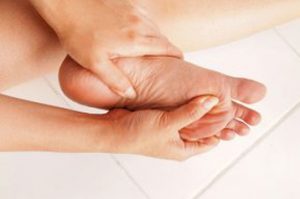 Circulatory problems usually involve multiple risk factors. With age, arteries harden, further restricting blood flow. Lifestyle is of significant influence with risk factors including smoking, obesity, birth control pills and prolonged periods of sitting or standing. Diabetics have a higher incidence of circulatory problems. Circulatory problems can pose a serious threat to one's general health and are linked to disturbing complications ranging from loss of eyesight to heart damage.
Circulatory problems usually involve multiple risk factors. With age, arteries harden, further restricting blood flow. Lifestyle is of significant influence with risk factors including smoking, obesity, birth control pills and prolonged periods of sitting or standing. Diabetics have a higher incidence of circulatory problems. Circulatory problems can pose a serious threat to one's general health and are linked to disturbing complications ranging from loss of eyesight to heart damage.
The path to improved circulation usually begins at home. Beyond self-improvement measures, such as stopping smoking, keeping your weight in check and staying as active as possible, many treatment options are available. Studies have long since supported evidence that acupuncture is highly effective in improving circulation.
We have found that the combination of acupuncture with therapeutic exercise is highly effective in increasing blood flow to the extremities. Acupuncture is designed to introduce microscopic trauma to specific areas of the body, triggering a reaction in the brain, initiating blood vessel dilation in the area being treated. Not only is circulation improved, but also, this form of treatment is far less invasive than surgical options and is virtually painless. Furthermore, for those who attain the best-desired result, it may not be necessary to take prescription medication for circulation. However, medication and surgical procedures are also available.
A program of regular exercise and good nutrition is advisable. You may need to lose weight and abandon old habits. Your diet should be low in fat and high in fiber, with an emphasis on whole grains, fresh fruits, and vegetables. Avoid caffeine, as it causes blood vessels to constrict. Eat fish such as salmon, mackerel or tuna, as these fish are low in fat and high in nutritional value. Vitamin C, E, and niacin are believed to have a dilating effect on blood vessels, although niacin, in some persons, can cause flushing. If you experience swelling or inflammation, you may also be advised to take a daily dose of aspirin, unless allergies or stomach problems prevent it.
Conditions Treated
-
- Bursitis
- Carpal Tunnel Syndrome
- Chronic Fatigue Syndrome
- Circulation
- Fibromyalgia
- Foot & Heel Pain
- Frozen Shoulder
- Herniated Disk
- Lower Back Pain
- Lumbar Spinal Stenosis
- Migraines
- Neck Pain
- Osteoarthritis
- Peripheral Neuropathology
- Piriformis Syndrome
- Poor Posture
- Rheumatoid Arthritis
- Rotator Cuff
- Sciatica
- Shingles
- Sinusitis
- Tennis Elbow
- TMJ